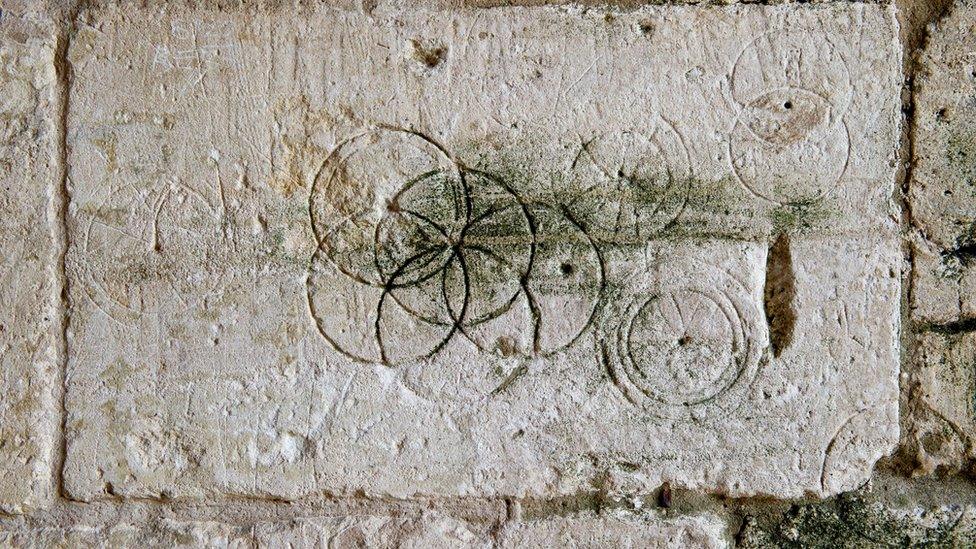Creswell Crags: 'Witches' marks' found in cave network
- Published
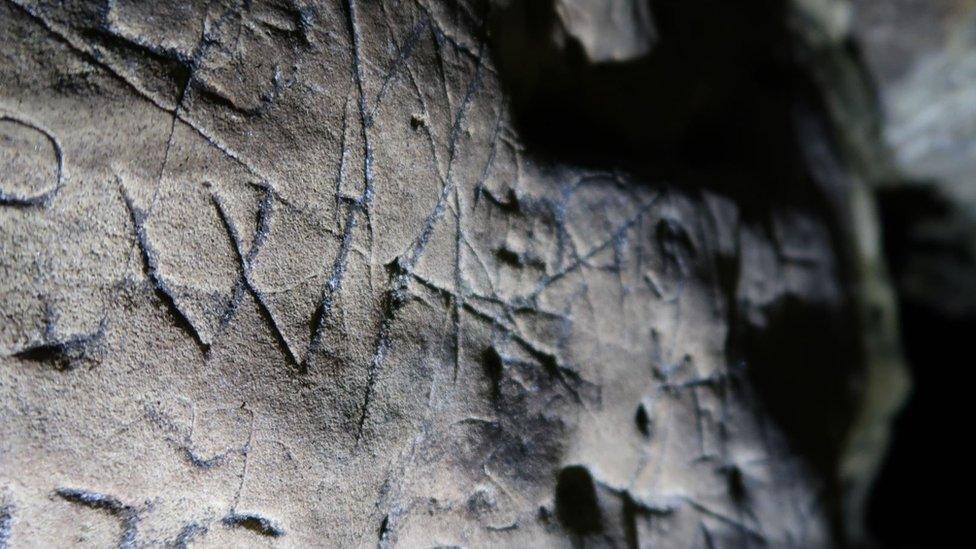
The "witches' marks" are scribed into walls and ceilings of the caves, over dark holes and large crevices
Hundreds of "witches' marks" believed to be from the 17th and 18th Centuries have been found in a limestone gorge.
They were discovered at Creswell Crags, Nottinghamshire, and are believed to be the biggest concentration of protective marks found in British caves.
The "apotropaic" marks were scribed into the cave surface as they were thought to keep evil spirits coming from the underworld.
Originally thought to be graffiti, they have now been reclassified.
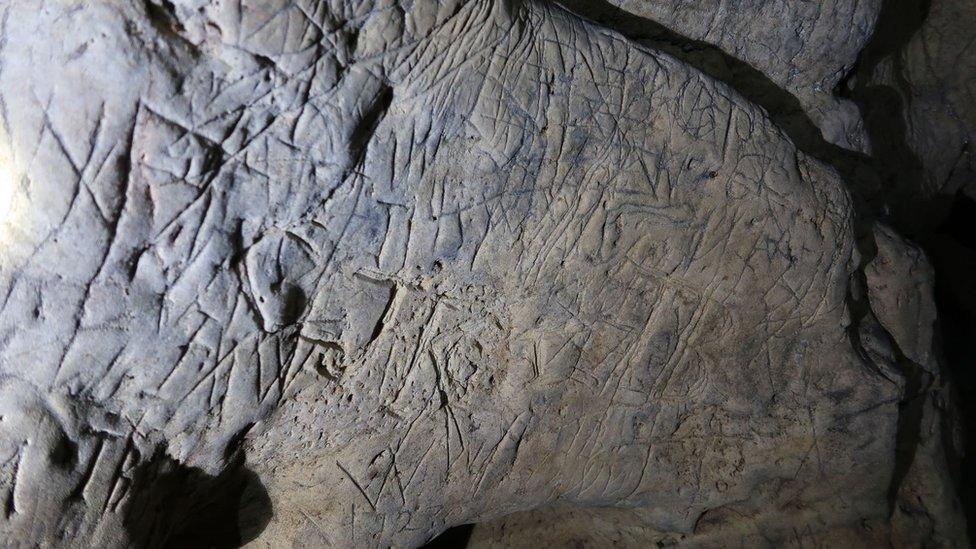
The marks have always been noticed, but for years were dismissed as graffiti from before the caves were barred
The discovery was made by Hayley Clark and Ed Waters from Subterranea Britannica, a charity whose members have a passion for underground space, during a cave tour.
Before then the marks had always been noticed, but dismissed as graffiti from before the caves were barred.
Alison Fearn, of Leicester University, who studied her PHD on protective marks, said: "I cannot emphasise how important this corpus of apotropaia is to graffiti research.
"I think off the top of my head, it is the largest number of examples found anywhere and in any context in the UK."
Protection marks are most commonly found in medieval churches and houses, near the entrance points, particularly doorways, windows and fireplaces.
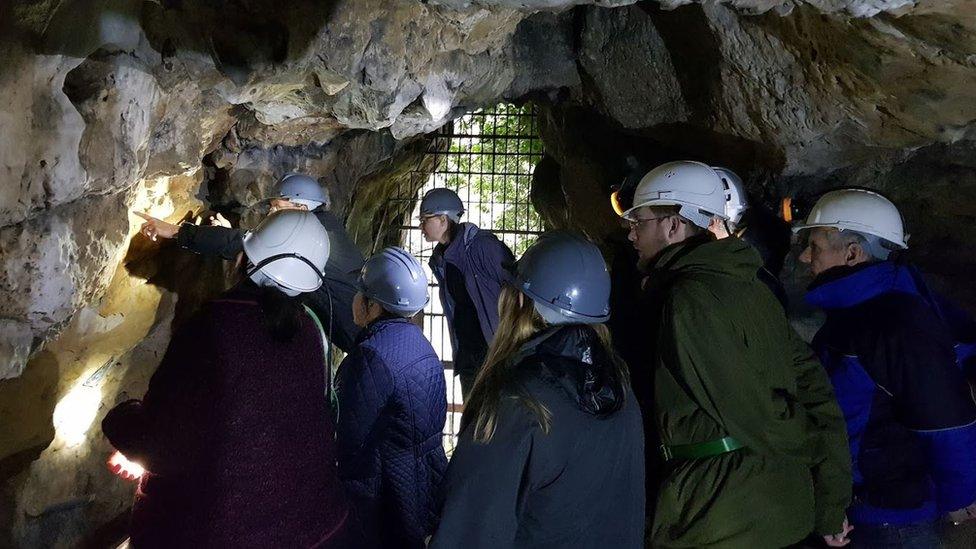
Members of the Subterranea Britannica group made the discovery
Creswell Crags said it was thought that the largest quantity of "witches' marks" in British caves were the 57 found in a Somerset cave, but there are hundreds in one cave alone at Creswell.
They include the double V, which is believed to mean Virgin of Virgins, while PM is thought to reference Pace Maria.
Diagonal lines, boxes and mazes are thought to be symbols for capturing or trapping evil.
John Charlesworth, tour leader at the time of the discovery, said: "These witches' marks were in plain sight all the time.
"Being present at the moment their true significance was revealed will stay with me forever."
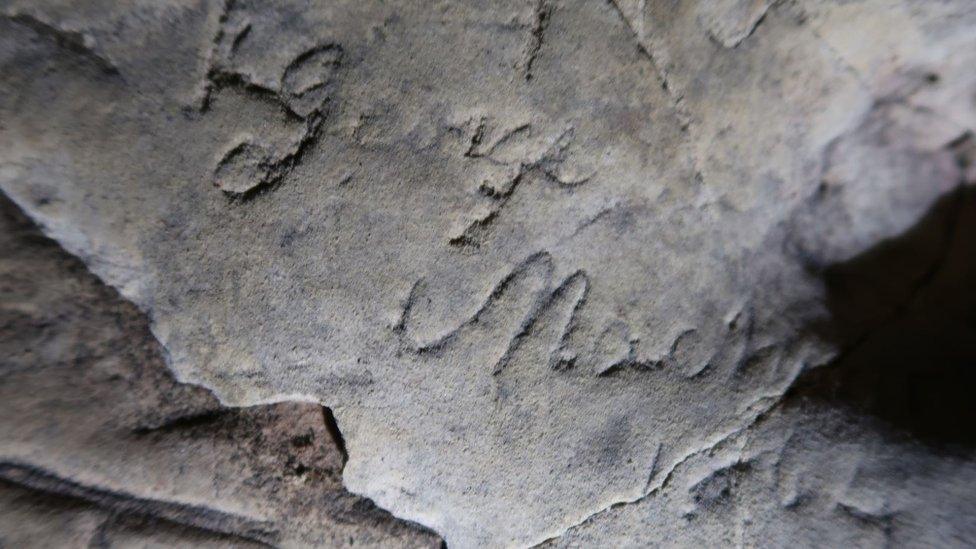
Marks have since been found in all caves at Creswell Crags

Follow BBC East Midlands on Facebook, external, on Twitter, external, or on Instagram, external. Send your story ideas to eastmidsnews@bbc.co.uk, external.
- Published14 June 2017
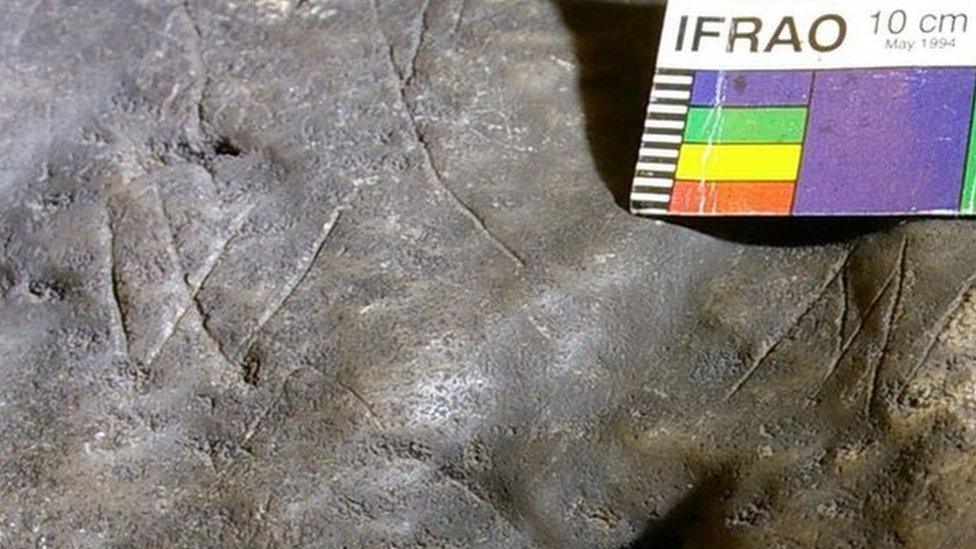
- Published31 October 2016
- Published31 October 2016
